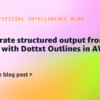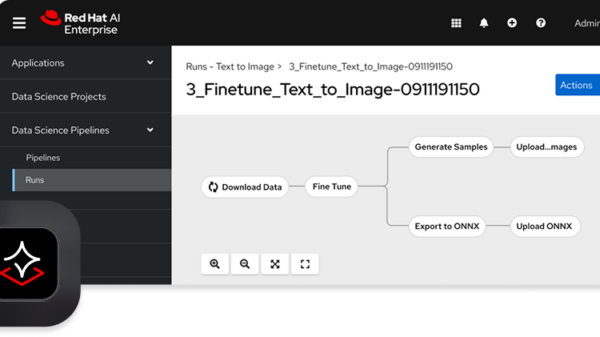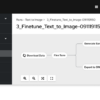Managing Kubernetes workloads can often be a daunting task, requiring specialized knowledge in container orchestration and related technologies. However, with the new Amazon Elastic Kubernetes Service (Amazon EKS) Model Context Protocol (MCP) Server, which has recently entered preview, the complexity of this task can be significantly reduced. This innovative tool allows users to manage their EKS clusters through simple conversational queries rather than intricate kubectl commands.
The Amazon EKS MCP Server is built to facilitate seamless interactions with EKS clusters. Traditional approaches often demand a high level of Kubernetes expertise, but by utilizing natural language processing, this new server allows users to deploy applications, troubleshoot issues, and upgrade clusters without extensive technical know-how. This transformation is made possible through real-time access to live cluster data, a feature that generic large language models (LLMs) often lack.
The Model Context Protocol (MCP) is an open-source standard that enables AI models to interact securely with external tools and data sources, enriching AI applications with real-time, contextual knowledge. This capability is particularly crucial for application lifecycle management, as it allows for more accurate and tailored guidance from development through operations. Earlier this year, AWS was among the first managed Kubernetes service providers to announce an MCP server, allowing customers to install a local version of the EKS MCP Server. However, customer feedback indicated a strong preference for a cloud-hosted, fully managed EKS MCP Server, which AWS has now delivered.
Key Features of the Amazon EKS MCP Server
The newly released fully managed Amazon EKS MCP Server includes several essential features aimed at enhancing the user experience:
- Elimination of Installation and Maintenance: Users no longer need to manage version updates or troubleshoot local server issues. The AI assistant can connect to the hosted EKS MCP Server endpoint via a lightweight proxy, automatically receiving new tools and bug fixes.
- Centralized Access Management: With deep integration into AWS Identity and Access Management (IAM), users can control access securely, with every request signed using AWS Signature Version 4 (SigV4).
- Enhanced Troubleshooting: The server provides access to a knowledge base built from operational experience managing millions of Kubernetes clusters.
- Enhanced Monitoring and Visibility: AWS CloudTrail integration captures all tool calls made through the hosted service, enabling detailed audit trails and compliance reporting.
This fully managed server aims to create agentic experiences for users employing AI-powered development tools or building their own agents that need to interface with EKS clusters. It provides a standardized interface that allows any MCP-compatible AI tool to deliver effective EKS guidance and automation out of the box.
Conversational AI for EKS Management
One of the standout features of the EKS MCP Server is its ability to simplify complex workflows into straightforward natural language requests. For example, users can check if their EKS cluster is ready for an upgrade with a simple inquiry like:
Assess my EKS Auto cluster's upgrade readiness, including support status, upgrade timeline, and any blocking issues.This prompts the agent to provide comprehensive insights about the cluster, eliminating the need for manual checks across multiple components.
Another powerful capability is its application deployment feature. Users can deploy applications through high-level workflows, such as:
I want to deploy a simple web app to my EKS cluster named my-auto-cluster that shows 'Hello EKS!' on the page.In this case, the agent orchestrates multiple tools to handle the entire deployment process, thereby significantly reducing complexity.
Troubleshooting has also seen substantial improvements. For instance, if a LoadBalancer service is stuck in a pending state, users can simply ask for help. The agent will analyze the service status, retrieve event logs, and even search through troubleshooting guides to identify the issue.
Integration with Amazon Q for Enhanced Experience
Moreover, Amazon EKS now integrates the “Inspect with Amazon Q” feature directly into the console, providing AI-driven assistance for troubleshooting and analysis. This functionality is available across various sections, allowing users to quickly diagnose and address cluster health issues, upgrade insights, and node health monitoring.
By leveraging the capabilities of Amazon Q, the integration enhances the user experience by providing contextual insights without needing to switch between different tools.
The Amazon EKS MCP Server in Preview is set to redefine how teams interact with Kubernetes, making complex operations accessible through natural language. It is available in all AWS Commercial regions, excluding US GovCloud and China. Teams can start by configuring the EKS MCP Server in their environments and gradually expand their capabilities, making it a vital tool in modern cloud-native application management.
 NexGen Cloud Integrates Hugging Face Models into Hyperstack AI Studio for Faster AI Development
NexGen Cloud Integrates Hugging Face Models into Hyperstack AI Studio for Faster AI Development AI Simplifies Medical Reports, Reducing Reading Time by 72% for Cancer Patients
AI Simplifies Medical Reports, Reducing Reading Time by 72% for Cancer Patients Google DeepMind Hires Boston Dynamics CTO Aaron Saunders to Advance Robotics Efforts
Google DeepMind Hires Boston Dynamics CTO Aaron Saunders to Advance Robotics Efforts Anthropic Reveals AI Misalignment Risks Linked to Reward Hacking in New Study
Anthropic Reveals AI Misalignment Risks Linked to Reward Hacking in New Study ServiceNow Partners with Microsoft to Elevate AI Governance, Targeting $20.3B Revenue by 2028
ServiceNow Partners with Microsoft to Elevate AI Governance, Targeting $20.3B Revenue by 2028






























































